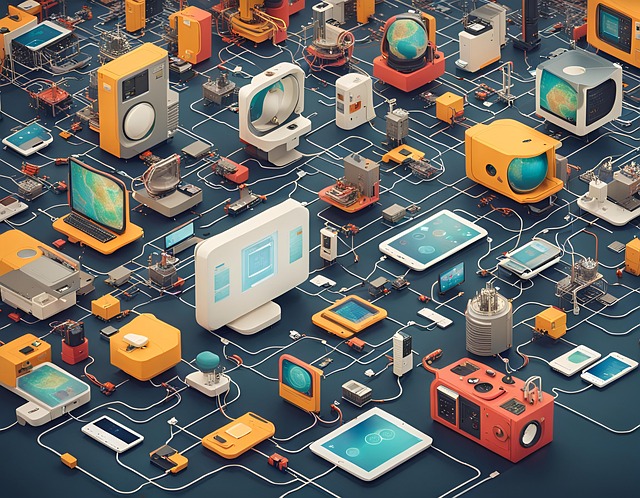AI-based diagnostic systems for automotive repair are transforming car shop operations by boosting efficiency through machine learning algorithms that analyze vehicle data and historical records. These systems automate initial assessments, freeing mechanics' time for complex repairs, and continuously learn to improve accuracy over time. Chatbots and virtual assistants powered by these AI systems offer 24/7 support with tailored recommendations, enhancing customer engagement and satisfaction. Predictive maintenance features forecast potential issues, minimizing downtime and positioning auto shops as innovative in the digital era.
“Revolutionize your automotive shop’s customer service with AI-driven strategies. In today’s digital age, embracing technology enhances client experiences. This article explores the transformative power of Artificial Intelligence (AI) in automotive maintenance. From AI-based diagnostic systems that streamline repairs to personalized chatbot interactions, these innovations ensure efficient and engaging customer journeys.
Discover how predictive maintenance, another key focus, enables proactive support, reducing unexpected downtime. We delve into these strategies, highlighting their benefits for both businesses and customers.”
- AI-based diagnostic systems for automotive repair: Enhancing Efficiency
- Personalized customer interactions: Chatbots and virtual assistants
- Predictive maintenance and proactive support strategies
AI-based diagnostic systems for automotive repair: Enhancing Efficiency

AI-based diagnostic systems for automotive repair are transforming how car shops operate, significantly enhancing efficiency in several ways. These advanced systems leverage machine learning algorithms to analyze vast amounts of data from vehicle sensors and historical repair records, enabling faster and more accurate identifications of issues. By automating initial assessments, AI diagnostics reduce the time mechanics spend on troubleshooting, allowing them to focus on complex repairs and specialized tasks.
Moreover, these systems continuously learn from new cases, improving their diagnostic accuracy over time. This not only speeds up the repair process but also reduces costs for both shops and customers by minimizing unnecessary parts replacements and follow-up visits. With AI diagnostics, automotive service centers can deliver higher quality care while maintaining a competitive edge in today’s market.
Personalized customer interactions: Chatbots and virtual assistants

Personalized customer interactions have become a key differentiator in the competitive automotive service industry. Chatbots and virtual assistants, powered by AI-based diagnostic systems, are transforming how auto shops engage with their clients. These innovative tools offer 24/7 availability, instantly addressing common queries and providing quick solutions to customers. By learning from each interaction, they can deliver tailored recommendations and support, mirroring the personalized experience often associated with human agents.
Furthermore, integrating AI in customer service enhances efficiency and accuracy. Chatbots can collect detailed vehicle information during initial interactions, allowing for faster troubleshooting. Virtual assistants equipped with advanced natural language processing (NLP) capabilities can understand complex customer descriptions of issues, ensuring accurate diagnoses. This not only saves time but also reduces the risk of human errors, leading to higher customer satisfaction rates.
Predictive maintenance and proactive support strategies

In the realm of automotive shops, AI-based diagnostic systems for automotive repair are transforming customer service through predictive maintenance and proactive support strategies. By leveraging machine learning algorithms, these systems can analyze vast amounts of vehicle data to predict potential issues before they occur. This not only enhances the overall efficiency of repairs but also allows shops to offer more personalized services, boosting customer satisfaction.
Proactive support takes this a step further by providing real-time alerts and recommendations to both customers and service technicians. This enables automotive shops to address maintenance needs promptly, minimizing downtime for vehicles and ensuring optimal performance. Such AI-driven strategies not only foster trust among customers but also position automotive shops as innovative, forward-thinking businesses in the digital era.
The integration of AI-based diagnostic systems for automotive repair, personalized customer interactions through chatbots, and predictive maintenance strategies represents a paradigm shift in how automotive shops operate. These innovative approaches not only enhance efficiency but also elevate customer experiences by providing swift, accurate, and tailored solutions. As the automotive industry continues to embrace digital transformation, adopting these AI customer service strategies will be key for staying competitive and meeting evolving consumer demands.
